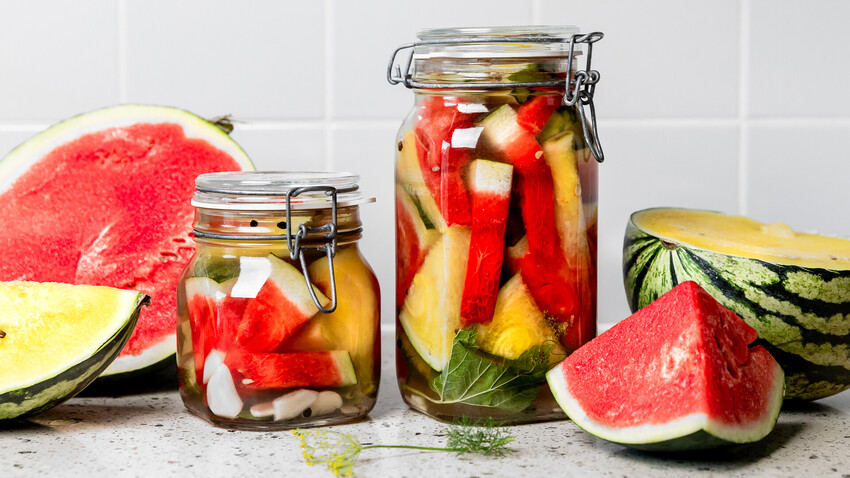
Want to spice up your summer? Try Russian-style pickled watermelon.
Yulia MulinoAt the behest of Tsar Alexei Mikhailovich Romanov, watermelons were first supplied to Moscow’s royal court starting in the middle of the 16th century. Having tasted them once, he ordered to plant fields of watermelons in Astrakhan, in the south of Russia. At the end of the 17th century watermelons began to be grown in greenhouses in the Kremlin and, later, even near St. Petersburg despite its harsh climate.
Like all gastronomic novelties, watermelons were perceived ambiguously in society. At first the Church associated watermelons with severed heads and forbade eating them raw. Therefore, they were boiled and salted.
There are many ways to pickle them. Watermelons are salted in jars or wooden barrels, either as a whole or sliced, and adding either vinegar or citric acid.
To prepare salted watermelon correctly you need to observe a few nuances. First, choose the right ones. This means that they must ripen, but remain hard, not grainy. For the pickling process to be successful, the watermelons must not contain pesticides. Pickling jars should be sterilized before use.
Garlic, pepper, dill tips and horseradish are traditionally used as spices. I did not have horseradish, so I used fragrant black currant leaves instead.
You can use pickled watermelon along with the rest of the pickled items as a garnish or an appetizer.
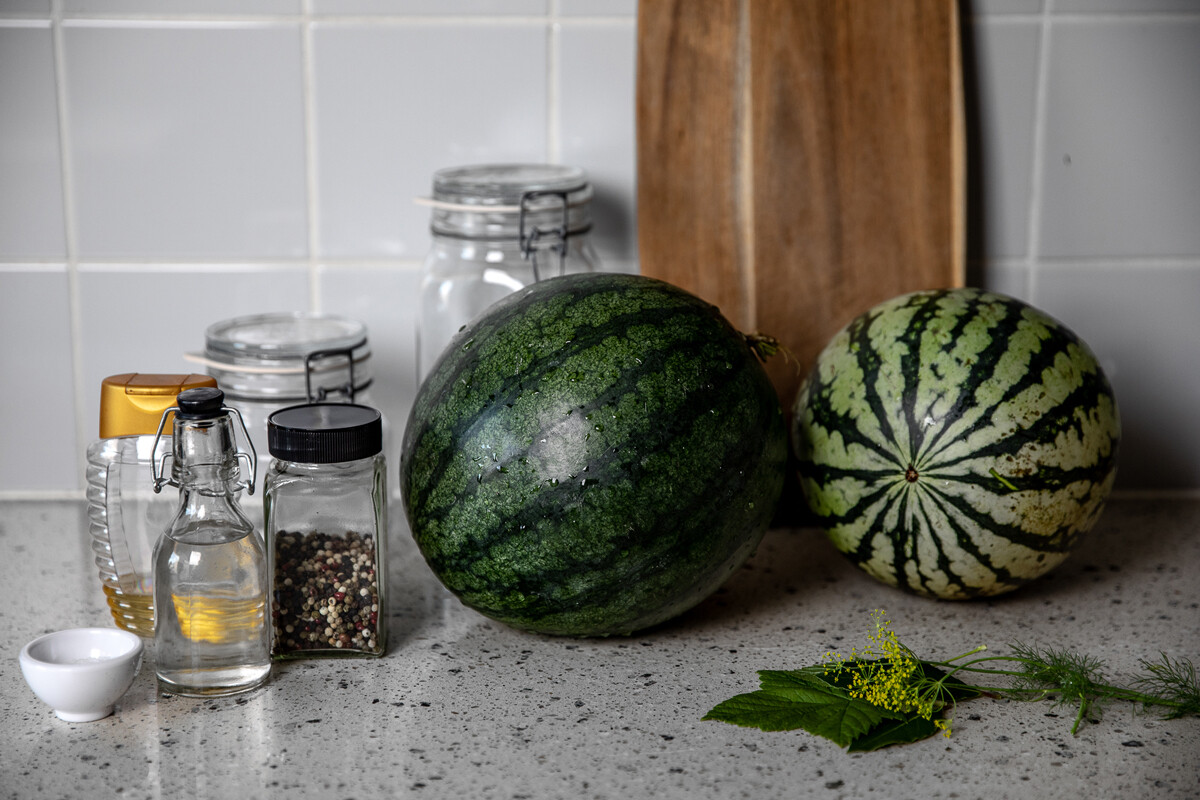
1. Use a convenient way to sterilize jars. I boiled them in water. Before sterilizing, check if they’re suitable for canning.
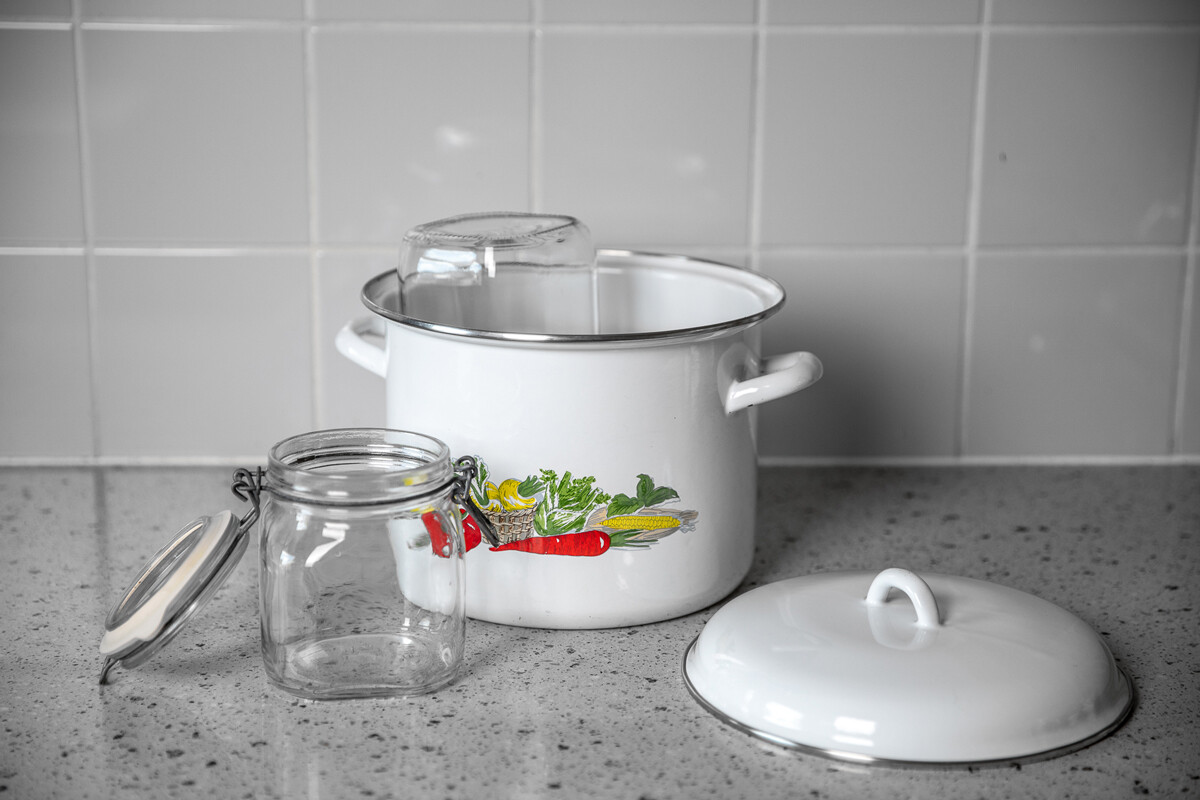
2. Dry the jars with a towel.
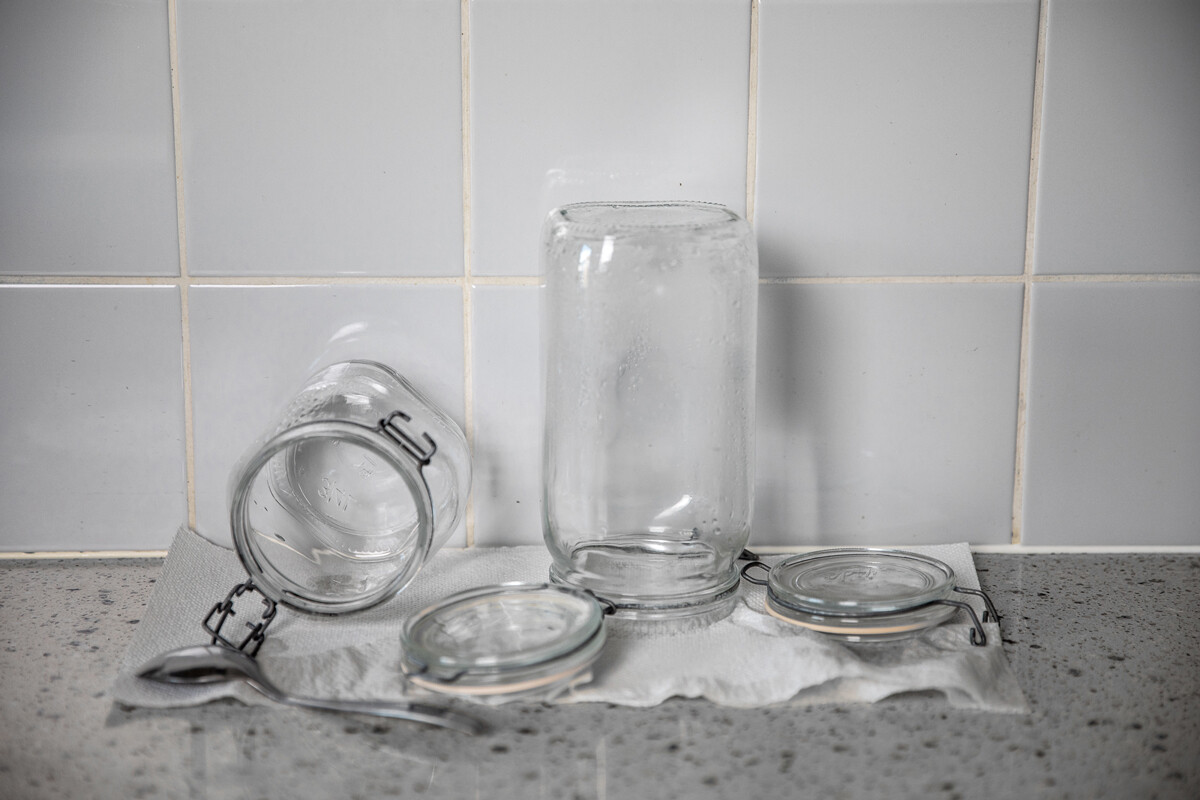
3. Cut the watermelon into small slices so they fit into the jars.
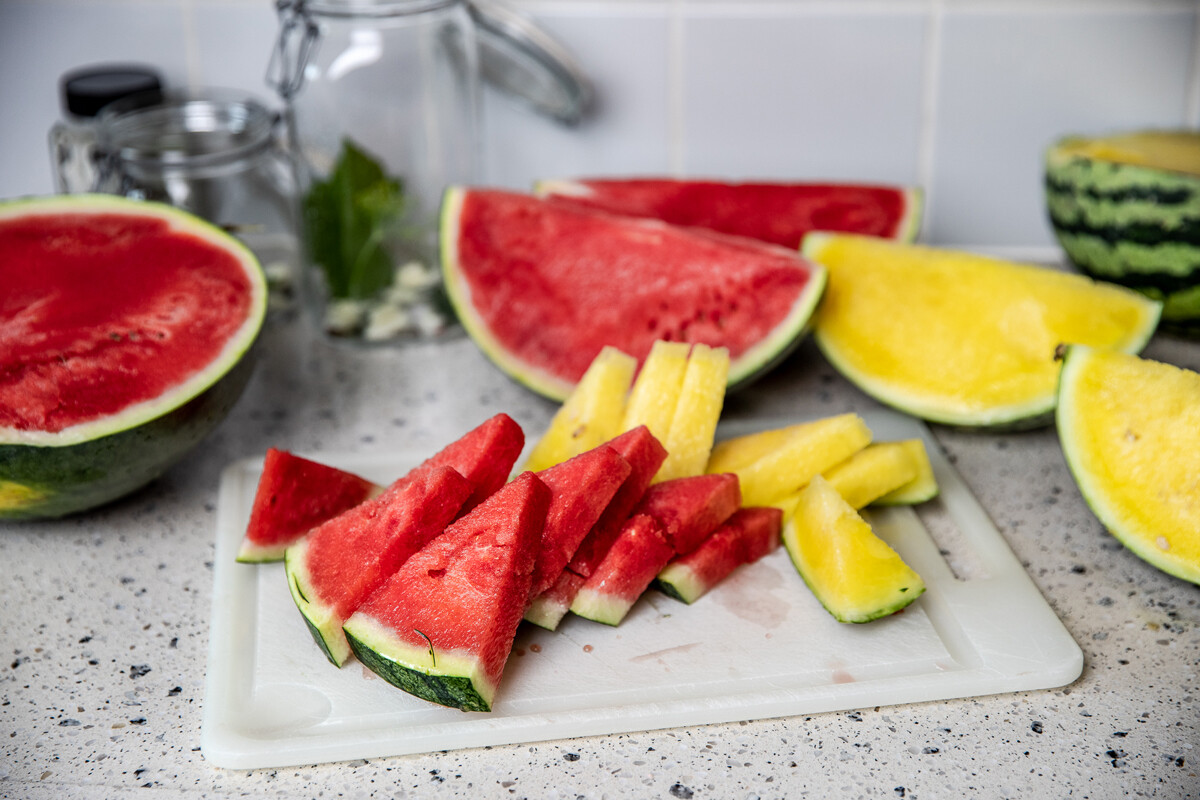
4. First place the seasoning in the jar bottoms.
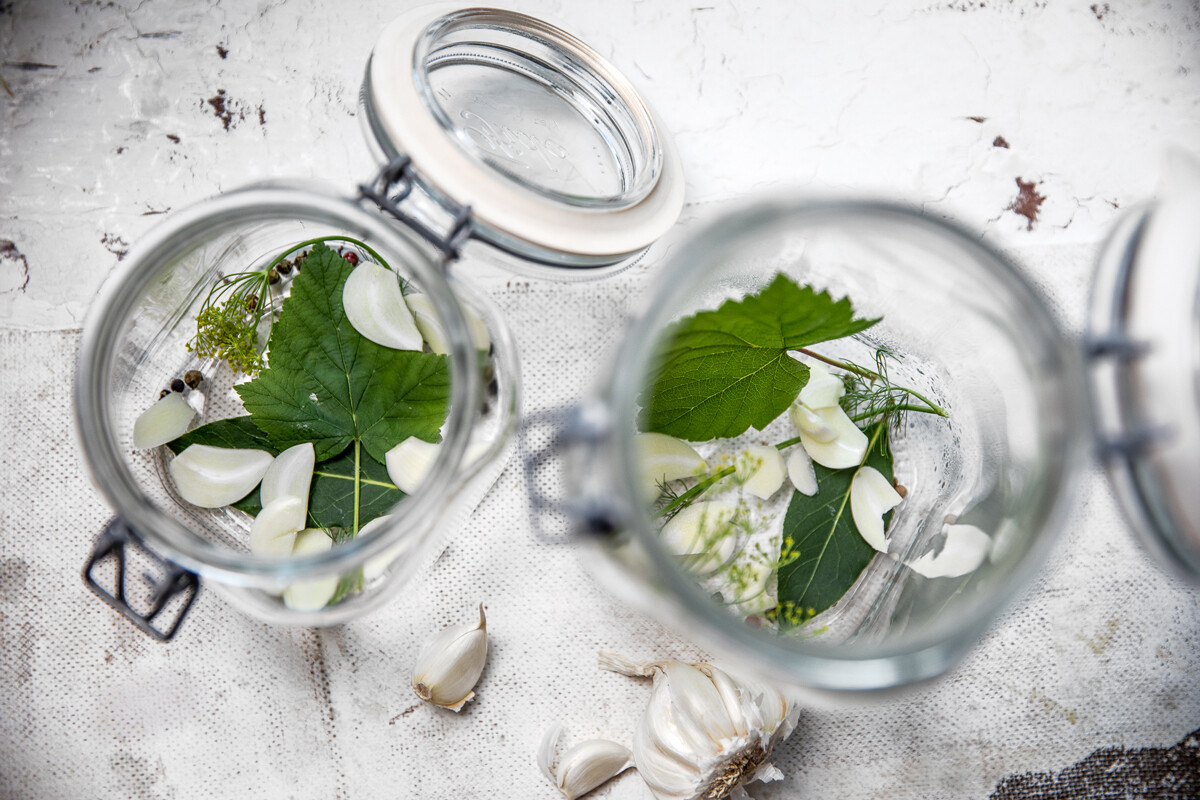
5. Next place the watermelon slices in the jars.
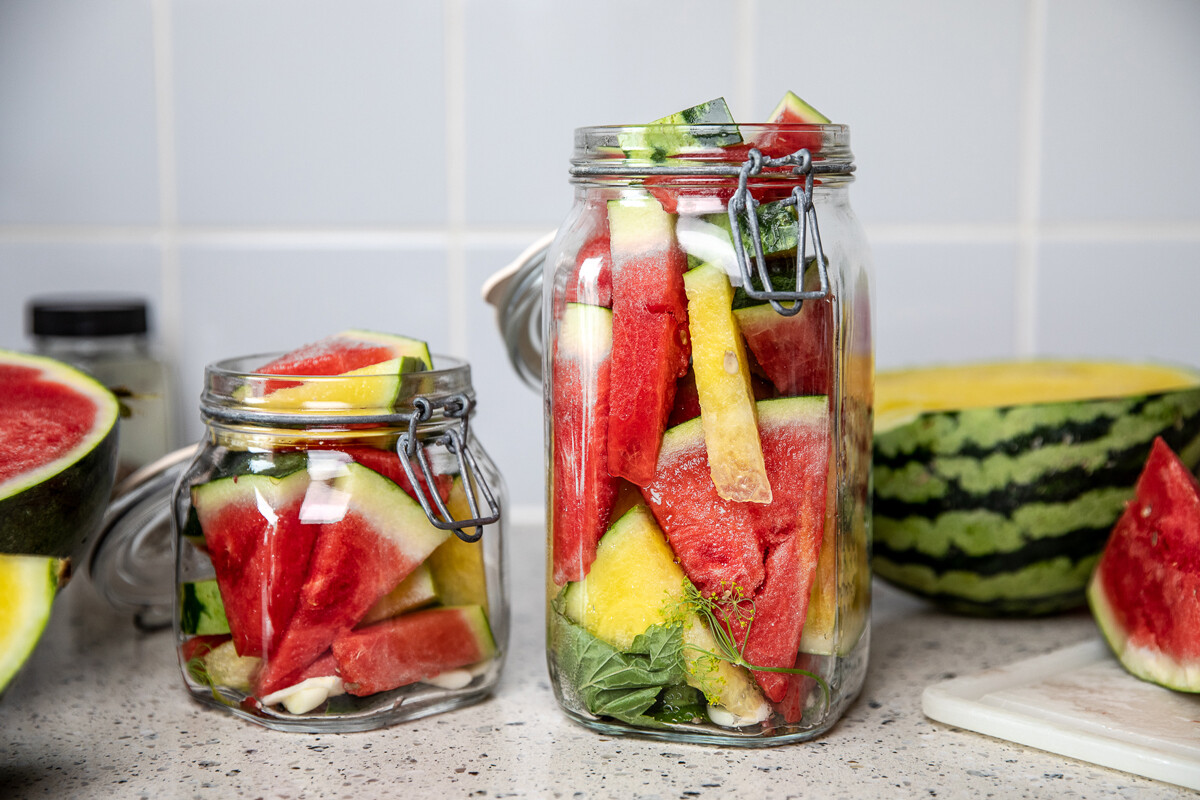
6. Boil water, pour it into the jars, cover with a lid and let rest for 15-20 minutes. Put the water back into the pot, boil and pour over the watermelons again, and leave it for 15-20 minutes.
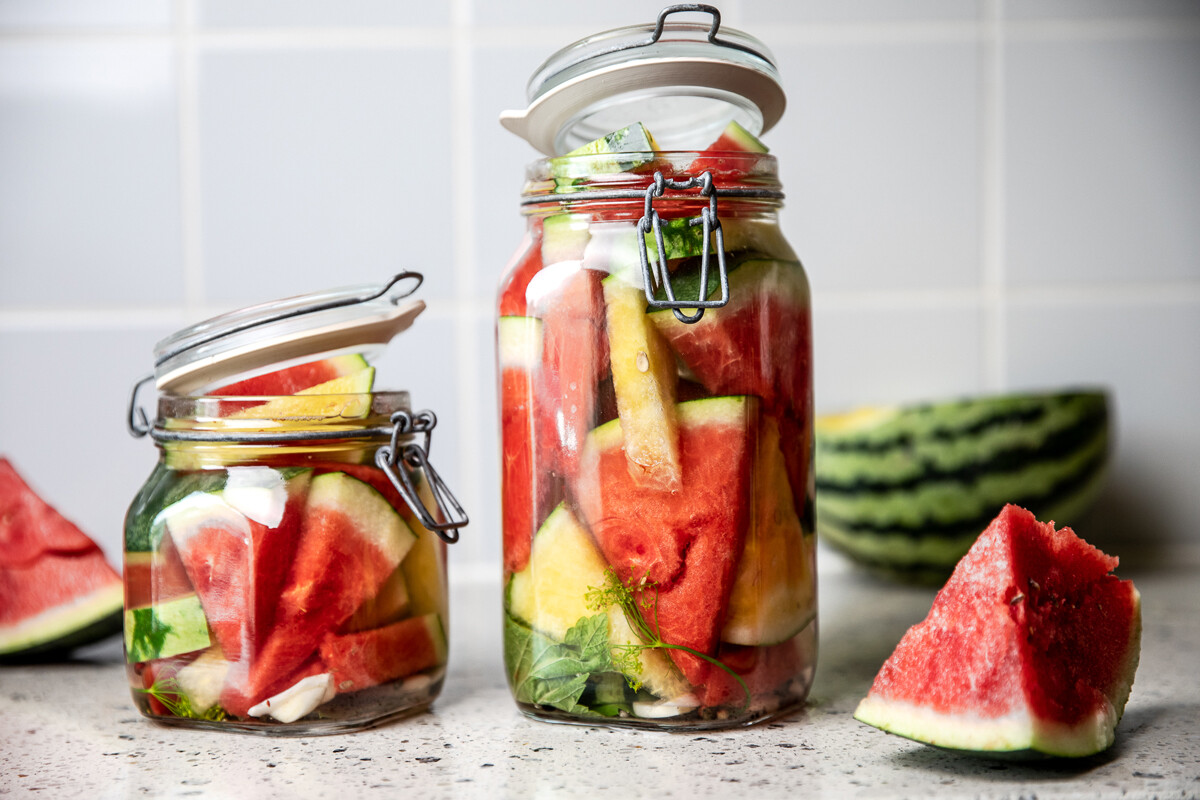
7. Remove the water again, heat to a boil, add the honey, salt and vinegar.
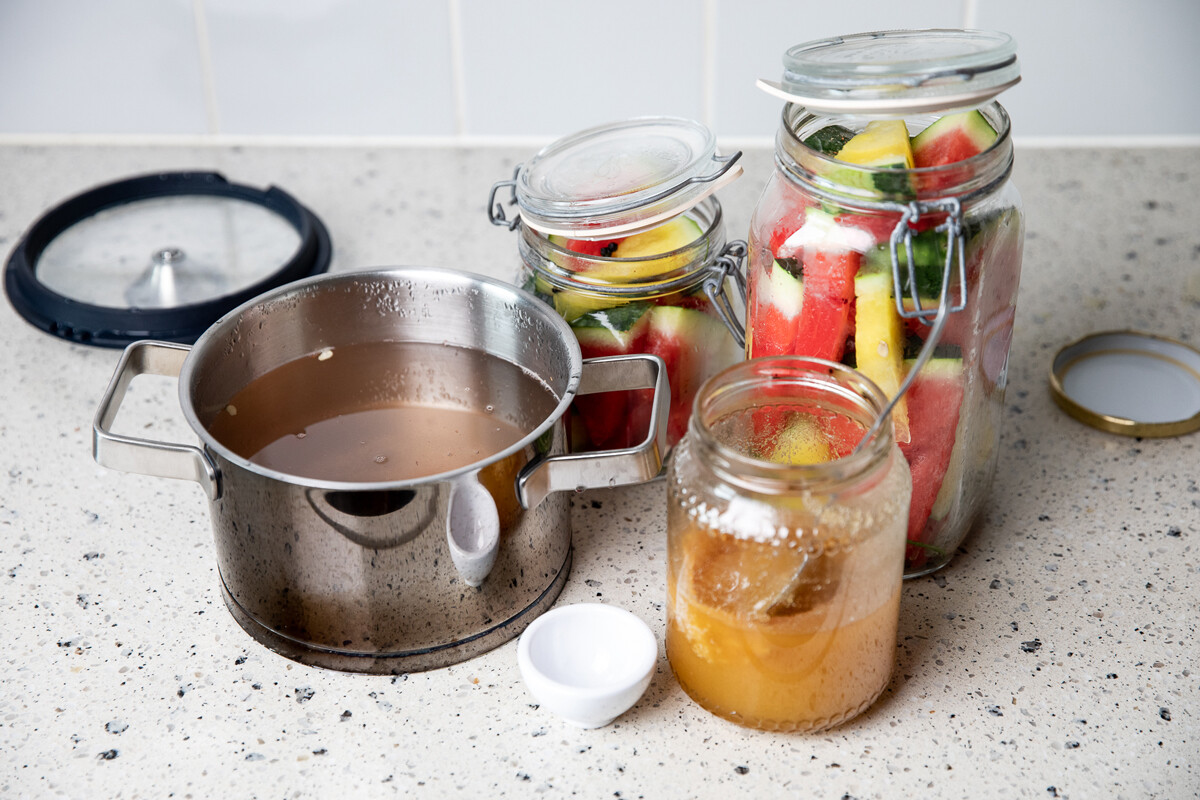
8. Pour the boiling brine over the watermelons and close the jars.
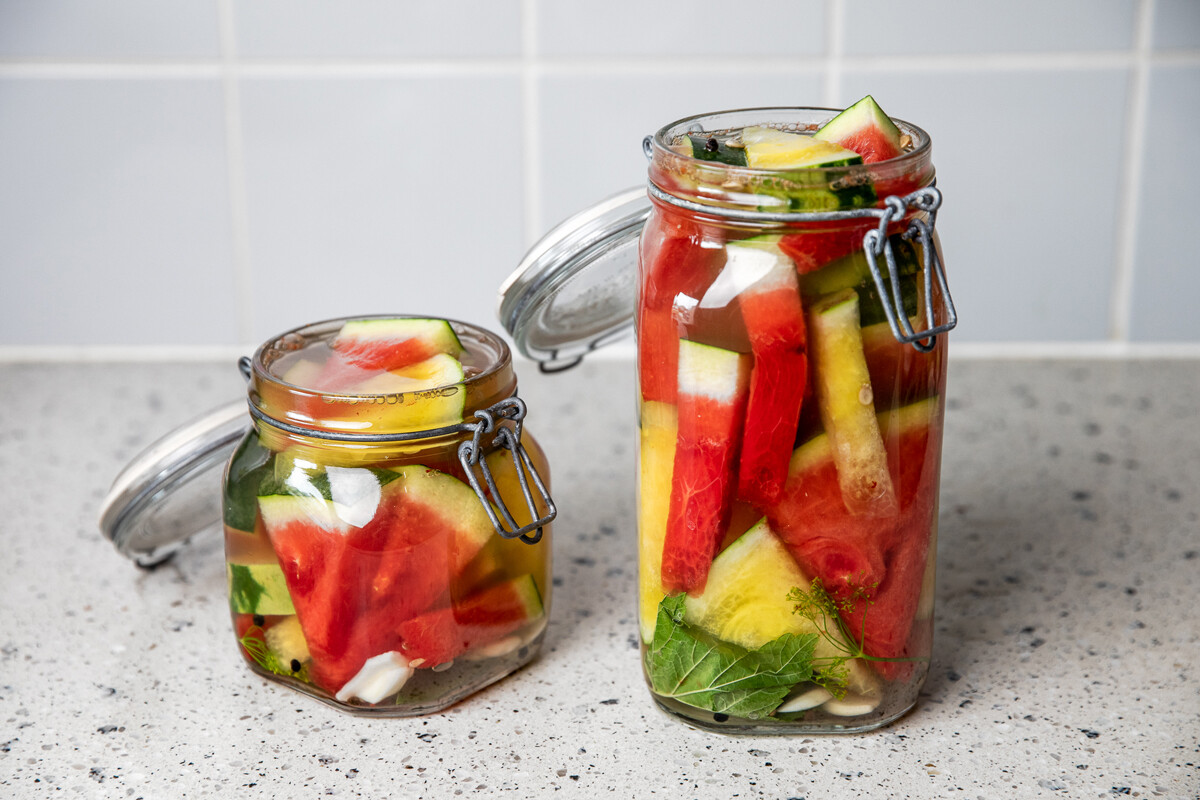
9. Turn the jars upside down and wrap to cool slowly.
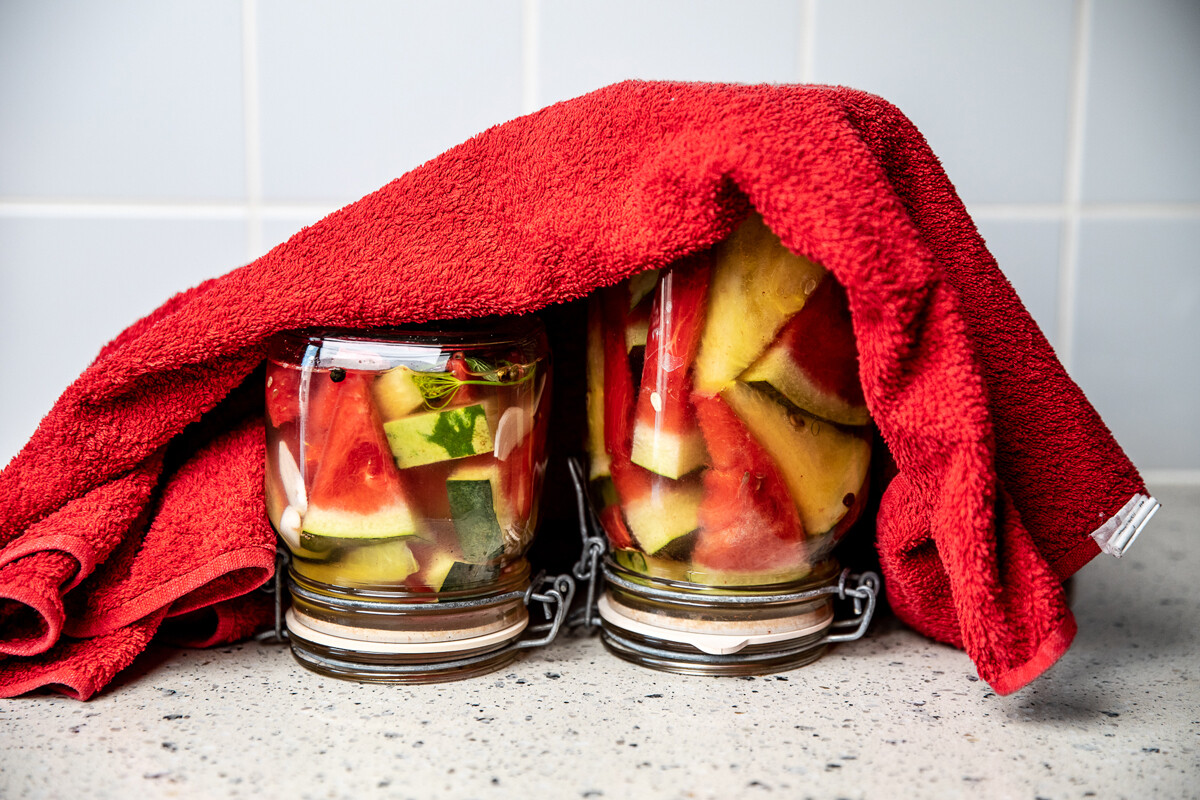
10. If you follow all the rules, the jars can be left out of the refrigerator for over a month, and they won't explode. Also, you can try pickled watermelons after a few days.
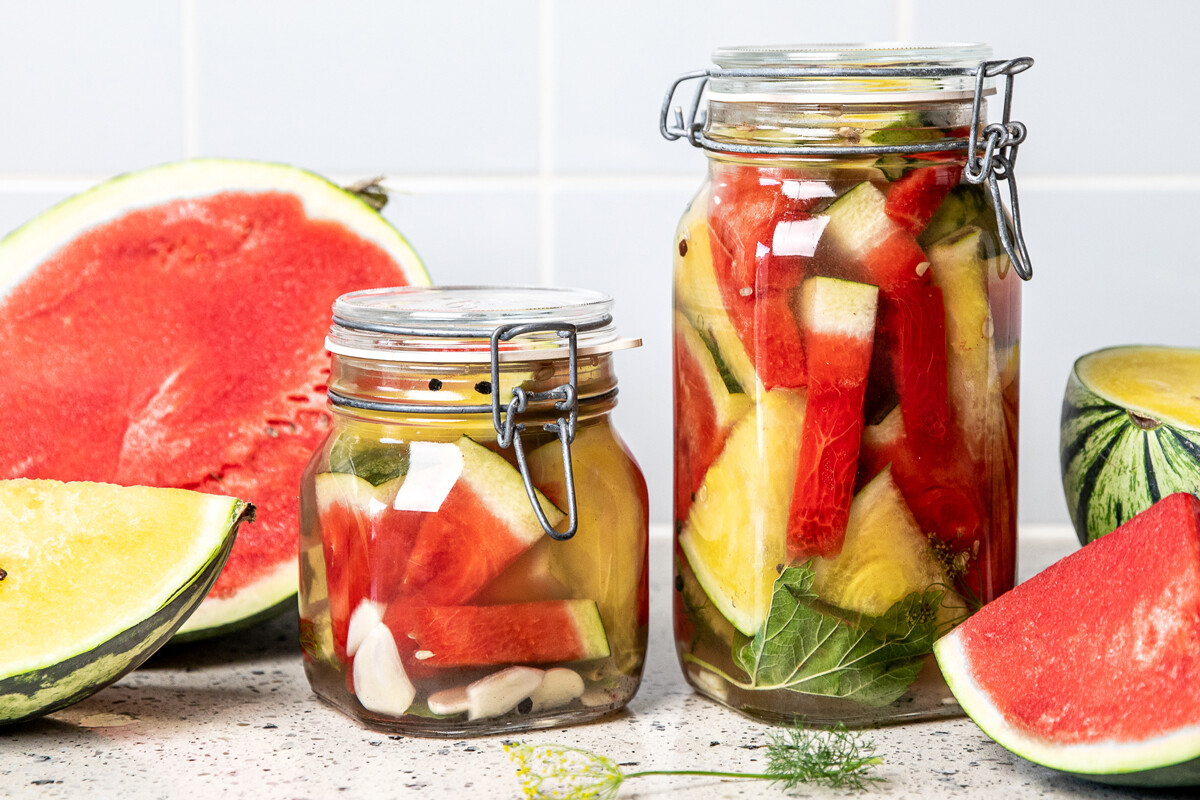
Dear readers,
Our website and social media accounts are under threat of being restricted or banned, due to the current circumstances. So, to keep up with our latest content, simply do the following:
If using any of Russia Beyond's content, partly or in full, always provide an active hyperlink to the original material.
Subscribe
to our newsletter!
Get the week's best stories straight to your inbox